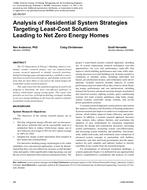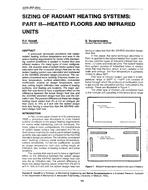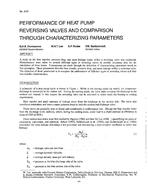Interior insulation of basement walls has been linked to moisture accumulation, damage, and mold growth within the vulnerable portions of the assembly. Four basement interior insulation wall systems were installed and monitored in a house in a cold climate; these assemblies included those with and without polyethylene vapor control layers, as well as extruded polystyrene foam for comparison.
Measurements indicated that summertime inward vapor drive occurs in the above-grade portions of the walls, but that an interior vapor control layer reduces the amount of moisture transmitted from the interior in the winter. However, both framed walls showed wood moisture content levels within acceptable limits, with and without polyethylene.
The measured boundary conditions from field monitoring were then used in one-dimensional hygrothermal simulations. Validation simulations were performed, followed by extrapolations that varied interior conditions, assemblies, and climate location. The validity of this simulation tool for designing interior basement insulation assemblies is discussed.
Presented at Thermal Performance of Exterior Envelopes of Whole Buildings X – December 2007
Units: Dual
Citation: Thermal Performance of Exterior Envelopes of Whole Buildings X
Product Details
- Published:
- 2008
- Number of Pages:
- 15
- File Size:
- 1 file , 3.4 MB
- Product Code(s):
- D-BldgsX123


